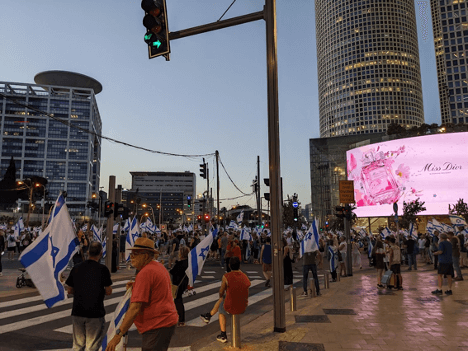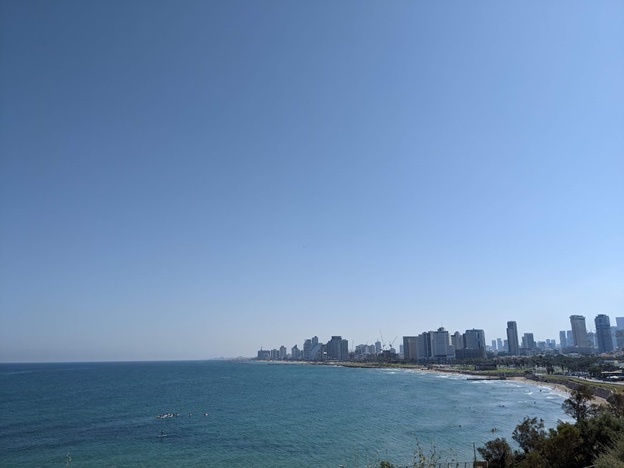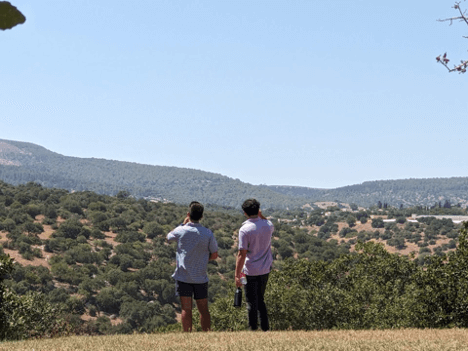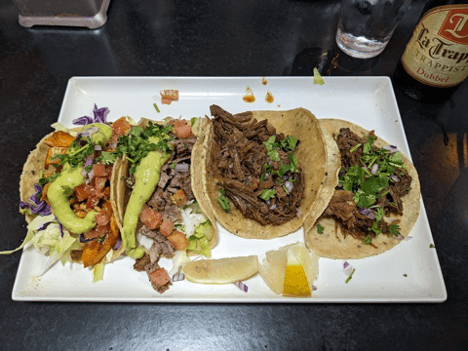Onward Israel Blog 2023: Week 5
Date: 07-25-2023 | Category: Blog,For Students | Reading Time: 7 Minutes
Who wants to talk about politics? Show of hands! Hmmm… it seems nobody wants to talk about politics. Well… too bad!
This week marks the umteenth week of consistent protests from predominantly liberal and moderate Israelis against some major changes that are trying to be pushed in the current government. To state on a very high level, the current coalition government led by Prime Minister Benjamin Netanyahu is making a combination of moves aimed at making the government significantly more conservative while also aiming to make the nation of Israel more legislatively religious as a whole. As I understand it (as there is a possibility I am not entirely accurate) some topics under contention include whether or not to make it illegal nationally to run a business on Shabbat, whether or not to remove certain rights of the homosexual community, and whether or not to provide more funding and/or privileges to the highly religious Jewish community. Currently the current government is trying its hardest to strip the judicial branch of the government from involvement with what the legislative/executive portion of the government does. This is with the intention to make enacting and enforcing legislation easier without any “checks and balances” from the judicial branch of the government.

Large protest against the federal government
This weekend I went on a shabbaton where the focus was the geopolitics of Israel. To the best of my ability, I’d like to give a brief summary of some aspects of the current geopolitical situation in Israel as it was explained to me. For this explanation, I will start with the name “Tel Aviv-Yafo”. “Why is it hyphenated?” you may ask yourself. Tel Aviv and Yafo exist as parallel cities, a real juxtaposition. On one hand you have Yafo which is the old city, comprised of historic architecture and populated by a mix of Arabs and Jews. On the other hand, you have the modern “western style” Tel Aviv with the high tech industry, towering skyscrapers, and a mix of Jews, Arabs, as well as people from many other walks of life. These cities poetically show the nature of the greater Israeli culture, the dichotomy of history, tradition, and religion with the modern world.

In the early 20th century, Jews from around the world migrated to what is modern day Israel, in hopes of pioneering this very land as a safe haven for any and all Jews. This is the foundation of modern day Zionism. This became exceptionally prevalent with the events leading up to the second World War and the Holocaust. During this point in time, namely the 1920s-1940s, lots of land was being purchased from the surrounding Arab countries that owned the land by those who had the excess capital. Particularly wealthy Jews like the Rothschild family contributed greatly to the acquisition of large plots of land in modern day Israel.
In 1948, two major events occurred; the British de-occupation of Israel with the recognition of Israel as an independent sovereign nation and the start of the 1948 Independence War which would come to last for just short of one year. Since the land that was purchased was owned by the neighboring Arab nations and not by the Palestinians, this left many Palestinians feeling like their home was being sold from them without their consent. This sentiment led to The Independence War which was primarily instigated by native Palestinians who were upset with the sale of the land they lived on to the newfound Israelis. With support from neighboring Arab nations Egypt and Syria, Palestinian civilians withdrew from their homes in Israel with the belief that the Palestinians, Egypt, and Syria would win the war against the Israelis, driving them out of the new nation, reclaiming the land that has been purchased from them over the past several decades. Much to the chagrin of the Palestinians, the Israelis won the conflict, displacing the Palestinians from the land. Israel offered those same Palestinans to be naturalized and integrated into Israeli society as Israelis. The requirement to become an Israeli citizen in 1952 (the first year citizenship could be officially obtained) was to have been registered in the Inhabitants Registration in 1949, be a resident of Israel in 1952, have lived in that area prior to the creation of Israel as an independent nation, or entered the country legally during this period. While a lot of Palestinians remained in Israel and became Israelis, a majority of the Palestians refused and sought refuge with their Arab neighbors. Unfortunately, nations like Egypt, Syria, Lebanon, etc. didn’t offer to take them in as citizens of their nations, leaving the Palestinans displaced. Without going into the gross details (I highly encourage reading up on the history) the borders have moved and changed many times between the country’s founding and now. There are two major events to acknowledge; the six-day war in 1967 and the Egypt-Israel peace treaty in 1980. The outcome of the six-day war was Israeli victory over Jordan which led to the occupation of the West Bank. The Egypt-Israel peace treaty which I covered in a previous article, resulted in peace between the two nations and Israel’s acquisition of the Gaza Strip. This is important as these were the lands in which the Palestinians still reside to this day. This creates the interesting geopolitical quagmire that Israel finds itself in today, the Palestinian conflict. I am not here to tell you who is right or who is wrong in this conflict as it’s complex and to say either side is totally in the right/wrong would be a disservice to the reality of the situation. Generally put, the Israelis feel they have come to acquire Israel legally and peacefully and the Palestinians feel their land has been taken from them unjustly, leading to the tension and conflicts at the borders of the West Bank and Gaza.

To conclude, the geo-political situation in Israel is a deep and complex one, entrenched in a short but dense history brimming with conflicts, changing borders, and a highly mixed population. It’s not clear who is right in the current state of Israel, but I feel I can speak for everyone when I say that peace is desired by both the Israelis and by the Palestinians. There are certainly those who are not for peace on both sides of the conflict (otherwise there would be no conflict), but there is an ever growing sentiment for peace among the two neighbors.
Food Corner:
This week I want to cover an authentic Mexican restaurant here in Tel Aviv called La Catrina! It’s a fun little spot, seating only ~20 customers, but serving up some really big flavor. The menu is fairly small, but has all of the things you’d expect to see in a good Mexican restaurant: tacos, burritos, enchiladas, etc. I got four tacos with a variety of different delicious, perfectly cooked, meats including chicken, steak, and pork. They were topped with a colorful mixture of vegetables, spices, and herbs and served up in a nice soft taco shell. They were moist, flavorful, filling, and delicious. I spoke with the owners and they said they moved to Israel around ten years ago from Mexico, so the food is certainly authentic. I certainly recommend giving La Catrina a visit if you ever want some authentic Mexican during your stay in Tel Aviv.

